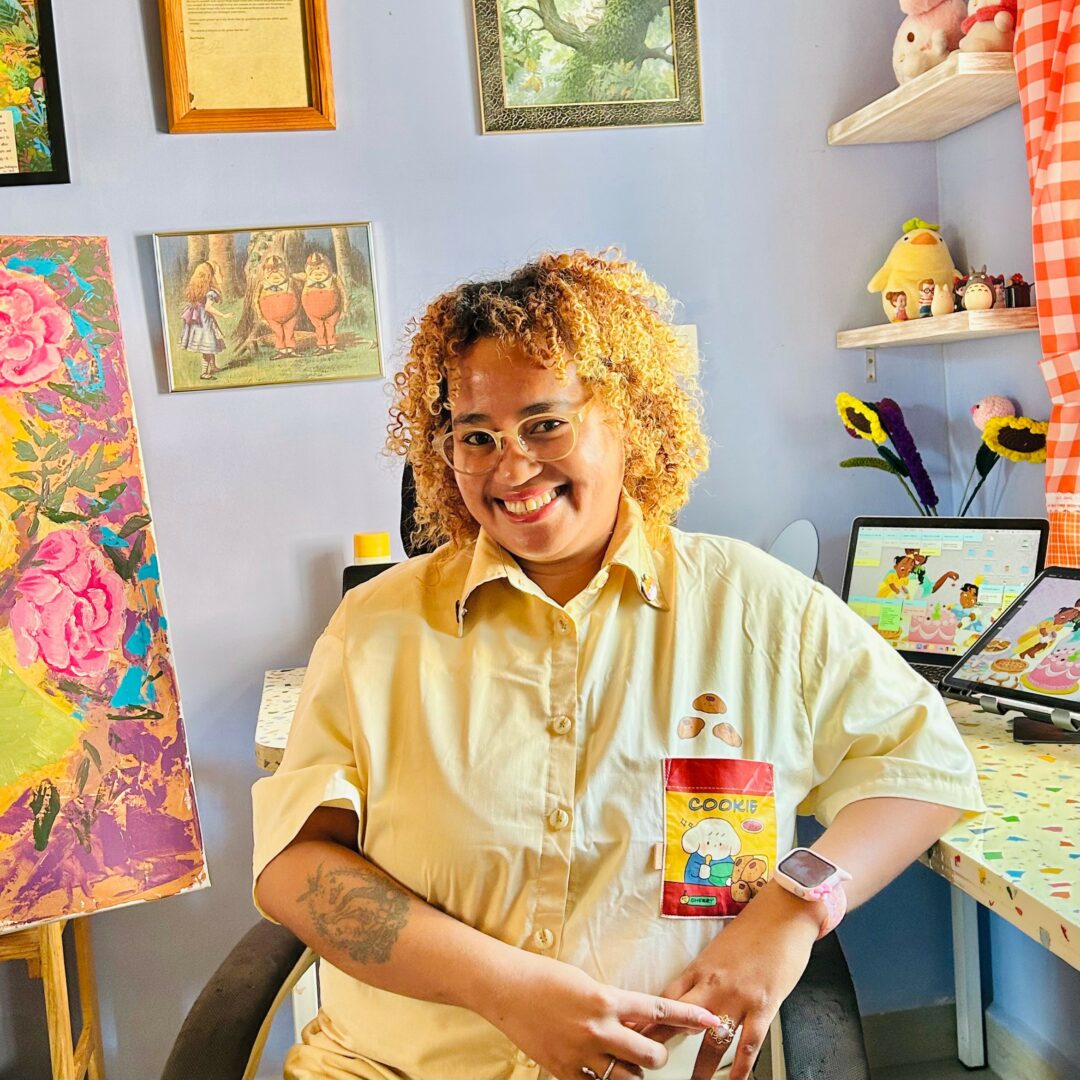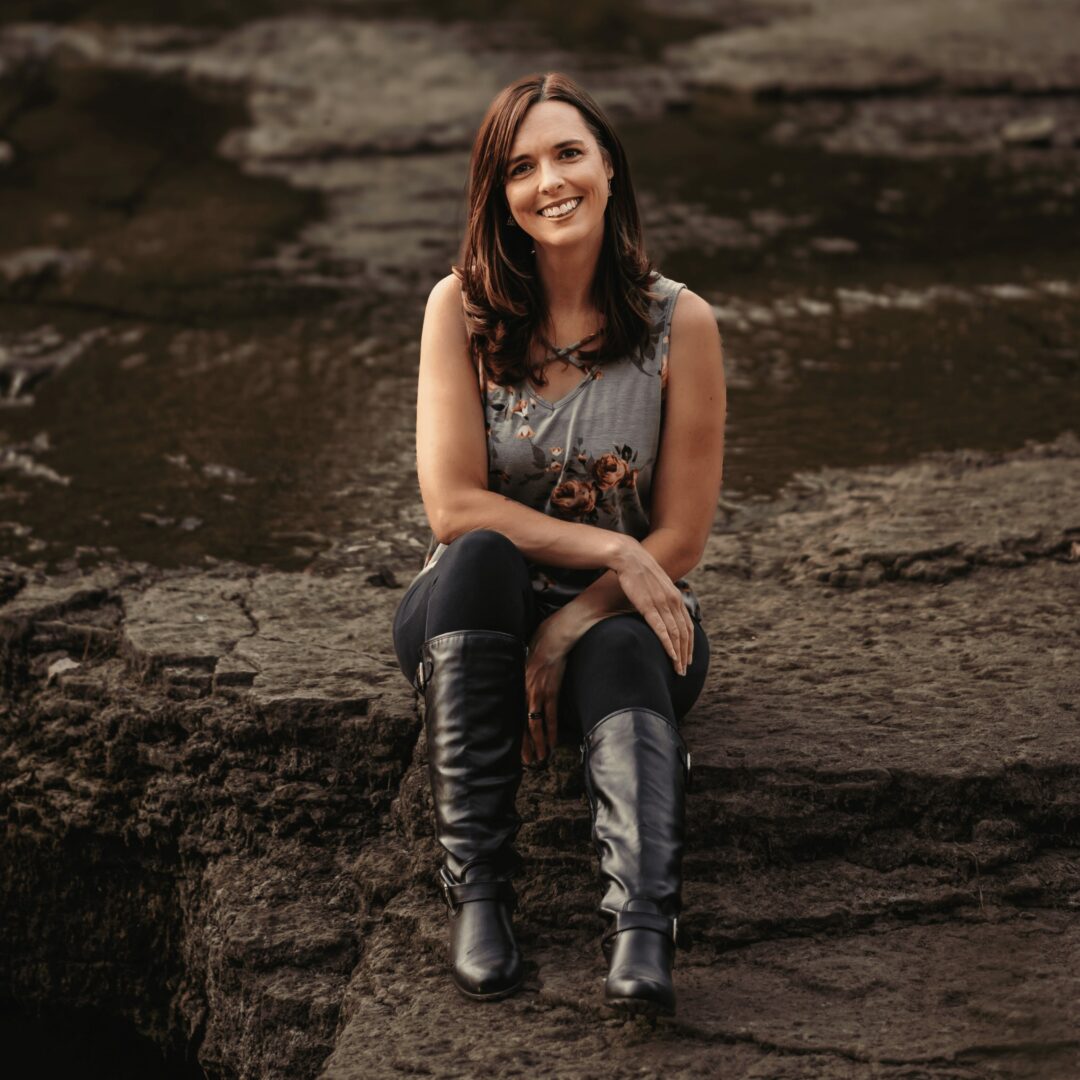We’re excited to introduce you to the always interesting and insightful Saki. We hope you’ll enjoy our conversation with Saki below.
Hi Saki, thank you so much for opening up with us about some important, but sometimes personal topics. One that really matters to us is overcoming Imposter Syndrome because we’ve seen how so many people are held back in life because of this and so we’d really appreciate hearing about how you overcame Imposter Syndrome.
Imposter syndrome is very real. Even after my big “lucky break” in 2020, when I won my first major art competition and scored a solo exhibition at the Oceanside Museum of Art, I felt like maybe I had been awarded those honors by mistake. Even though my friends and family supported me and showered me with compliments, I thought they were just being nice.
The turning point in me overcoming imposter syndrome was getting feedback from total strangers. At first I was totally surprised and didn’t even know how to accept a compliment, but as the praise kept rolling in, I started to feel that my success was more and more real.
My advice to those who feel like they’re “not good enough” is to simply put yourself out there into the world. Seek feedback from strangers—any feedback is good feedback even if it’s negative, because you can always use that information to guide your future work. If you keep improving yourself, one day you may become so good at what you do that people will only have good things to say about you. Remember: an imposter is someone who ignores feedback. If you are open to receiving feedback, and open to improving your work, then you are the real deal.
Appreciate the insights and wisdom. Before we dig deeper and ask you about the skills that matter and more, maybe you can tell our readers about yourself?
I’m an artist of many trades, master of some.
I have always been an artist, but it took a while for me to officially become one. As a kid, I spent most of my free time doing crafts, but I was discouraged from pursuing a career in art because my mom feared I would live in poverty. After getting degrees in both music and molecular biology, I went on to work in restaurants for my love of culinary arts. I was then recruited to work at a biotech company, where I stayed for several years while also running a vegan bakery and performing keyboards with a couple of local rock bands. The rock band had me designing and sewing costumes for every member, which is how I ended up in Fashion.
In 2020 during the lockdown, I decided to become a full-time artist. Besides writing a lot of music and releasing my first solo album, I focused on creating Gesamtkunstwerk, or integrated art. I combined costuming with storytelling, and also with music and poetry. An artist who intends to change the world, spark conversation, evoke thought, or simply inspire, must connect with the audience in as many different ways as possible. This is why many of my costumes and garments find their way into larger art installations, as they are based on characters I have created as part of a complete story.
My current efforts have been in raising awareness for various 21st century concerns such as environmental sustainability, human rights (equity among genders, ethnicities, etc.), and artificial intelligence. I hope that my art will inspire some critical thinking on these topics and lead to a better future, or at least a slightly more educated one with more intention going into it.
There is so much advice out there about all the different skills and qualities folks need to develop in order to succeed in today’s highly competitive environment and often it can feel overwhelming. So, if we had to break it down to just the three that matter most, which three skills or qualities would you focus on?
I’ll start with a skill everyone needs but some people (including myself) don’t want to hear: MAKE A PLAN. It is incredibly important to have at least a general idea of where you’re going. What’s your goal? When do you need to get there? Having a plan will help you determine whether your actions bring you closer to or take you further from your goal. Without a plan, you may as well toss your talents into the wind, letting fate decide whether you succeed or fail.
My second skill recommendation is to listen to input, and to weigh input judiciously. The number one person to listen to is yourself. Always follow your heart! Next, prioritize your target audience. (If you’re launching a brand, that means listening to your customers.) And then outside of yourself and your target audience, listen to everyone else (friends, family, the general public).
Disagreements may arise within these groups, and it’s up to you to know what your values and priorities are, and how you’re going to take feedback and make decisions that align with your own vision and goals. Remember that not all feedback carries equal value—it’s important to discern which opinions are genuinely constructive and relevant to your path. By striking a balance between receptiveness and discernment, you can navigate the sea of opinions while staying true to yourself and your objectives.
My last point of advice is simple but incredibly important: take care of your body! Sometimes I pull an all-nighter because I’m either on a roll with the project I’m working on, or because I procrastinated on something with an impending deadline. Sometimes I even forget to eat. The next day (or more) is completely wasted because my body simply lacks the necessary resources to get me through another period of high productivity.
We’ve all got limited resources, time, energy, focus etc – so if you had to choose between going all in on your strengths or working on areas where you aren’t as strong, what would you choose?
I think both are equally important. Recognizing, cultivating, and showcasing our strengths builds confidence and is ultimately what distinguishes us from others. On the other hand, a strength can easily become a crutch that we rely on to solve all our problems even when it’s not the best tool for the job. I use an example from my experience as a piano teacher:
I adopted many of my music students from other teachers and was shocked to find that some of these students were playing at a quite advanced level but could hardly read a single note. It turns out they were extremely talented at playing by ear—they learned most of their pieces by listening to recordings on YouTube or watching an older sibling play them, so there was never a need for them to read sheet music. This aural learning route worked out great for a while, sometimes even for years, until one day they had to learn a piece for which no recording existed, or a piece that’s just too complex to learn note-for-note by ear. I have seen such students get absolutely crushed by this: one day they’re praised as a prodigy, and the next day they find out that they were just a one-trick-pony. Whether or not this pony is willing to go back to basics and become functionally more well-rounded is ultimately up to them, but that decision becomes more difficult the longer they wait, as the parts of their brain responsible for learning new skills atrophy away the longer they remain unused.
Bottom line: know your strengths and lean on them, but don’t miss the opportunity to develop other talents.
Contact Info:
- Website: sakitheartist.com
- Instagram: @saki.the.artist
- Facebook: @saki.the.artist
- Youtube: youtube.com/c/SakiDoingThings
- Other: astraycatalyst.bandcamp.com






Image Credits
Chris Barbour, John Lundgren, Becky Campbell, Miracle Catcher Foundation




